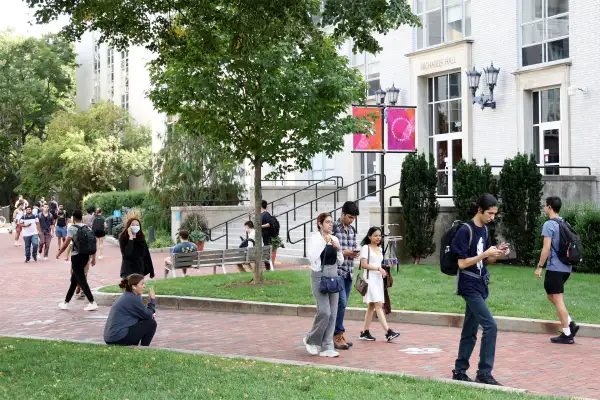Student Loan Payments Resume in January, but Most Borrowers Say They Can't Afford to Pay

The U.S. government's student loan payment pause doesn't end for another few months, but financial anxiety is already setting in for borrowers — most of whom who say they won't be able to handle the bill.
A new survey from decision intelligence company Morning Consult found that payments starting again will have a major impact on the financial security of 3 in 5 student loan borrowers, especially women and members of low-income households. Some 58% of respondents said they probably or definitely could not afford it.
Federal student loan payment requirements have been suspended since the start of the pandemic. In late August, President Joe Biden’s administration extended the pause for a seventh and final time; it's now set to expire Dec. 31. The extension was announced alongside a federal student loan forgiveness program, which will relieve up to $10,000 of debt for eligible borrowers who earn less than $125,000. (Borrowers who received a need-based Pell Grant in college can qualify for up to $20,000 of forgiveness.)
Morning Consult polled a representative sample of 715 Americans with student loan debt in the days following the Biden announcement.
The firm found that among households that make less than $50,000 a year, 68% of respondents said they wouldn’t be able to afford resuming payments. Slightly more than half making between $50,000 and $100,000 said the payments would create hardship for them. And that goes for loan burdens big and (comparatively) small: Over half of folks polled who owe under $25,000 said returning to payments would not be affordable.
The typical student loan payment Americans make is between $200 and $299 a month, according to a Federal Reserve report from 2019.
Other federal data generally shows that student loan debt most significantly impacts low-income households. A report from the American Association of University Women found that women hold roughly two-thirds of U.S. student loan debt.
This was mirrored in the Morning Consult poll, in which 65% of women said resuming payments would disrupt their financial security compared to 52% of men.
Higher education levels showed little influence on folks’ ability to afford payments. While more borrowers who have not completed their degree said resuming payments would cause a financial hardship, 58% of respondents with advanced degrees and 56% with bachelor’s degrees said they were in the same boat.
How Refinancing Student Loans Saves Money
